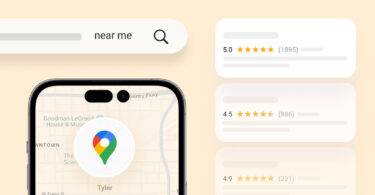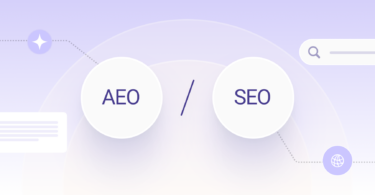When you’re running a local business, you know how important being found in local search sites is for driving foot traffic and earning trust. If a customer can’t find your address, hours, or phone number, they’re unlikely to walk through your doors.
With the rapid rise of AI search platforms (also called Large Language Models, or LLMs), managing your business listings online has never been more important.
But the big question is: How do these new AI tools compare to traditional search platforms when it comes to showing local business results?
To find out, we analyzed over 2,400 real-world searches across traditional platforms like Google Maps, Bing, Yelp, and leading AI models, including ChatGPT, Gemini, Claude, Perplexity, DeepSeek, and Grok. Our goal is to help your business steer this shifting terrain. We focused on how these platforms respond to local search prompts, including how many listings they returned, how close those results were, and how consistent they were by industry and geography.
Read on to see where each platform excels, where AI still struggles, and what actions you can take to keep your business listing visible and competitive, no matter how someone searches.
Why traditional platforms still lead in local search results
When it comes to local search, traditional platforms like Google Maps, Bing Maps, and Yelp still lead the way. They consistently surface:
- Verified, currently open businesses
- Correct addresses and categories
- Real-time hours and contact information
These platforms remain the most trusted sources for local discovery, especially in dense cities and high-demand industries like restaurants and healthcare.
In contrast, AI search tools are still developing. Our tests showed they often return fewer listings overall and struggle to stay consistent across industries and locations. Some LLMs surfaced businesses that were closed or mismatched by category, especially outside of metro areas.
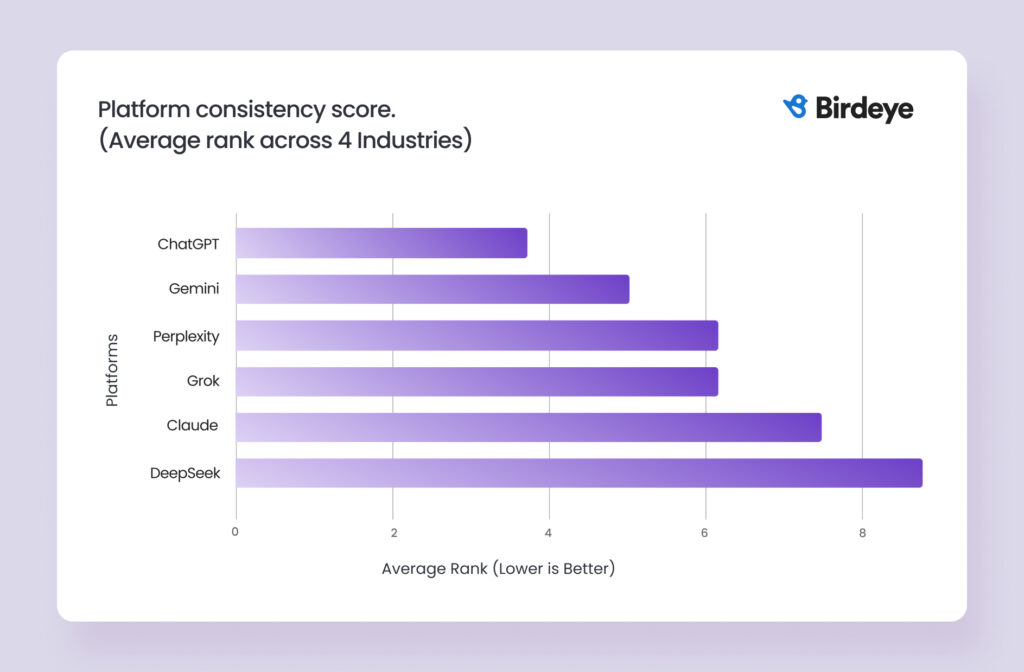
To reduce these inconsistencies, businesses should keep listings up to date across platforms like Google, Bing, Yelp, and their own websites. Structured, consistent data helps AI tools pull the right information more reliably.
What LLMs get right and where they fall short
Among the models tested, ChatGPT surfaced businesses located closest to the search location across most industries. This suggests it has stronger geospatial relevance, especially for users looking for nearby services. However, that precision came with a trade-off: it often returned fewer total listings, which could limit visibility for some businesses, particularly in less densely populated areas.
Other platforms like DeepSeek and Claude tended to show businesses farther from the intended search area. These models also surfaced listings that appeared to be mismatched or less relevant based on the prompt, potentially leading to confusing results for users.
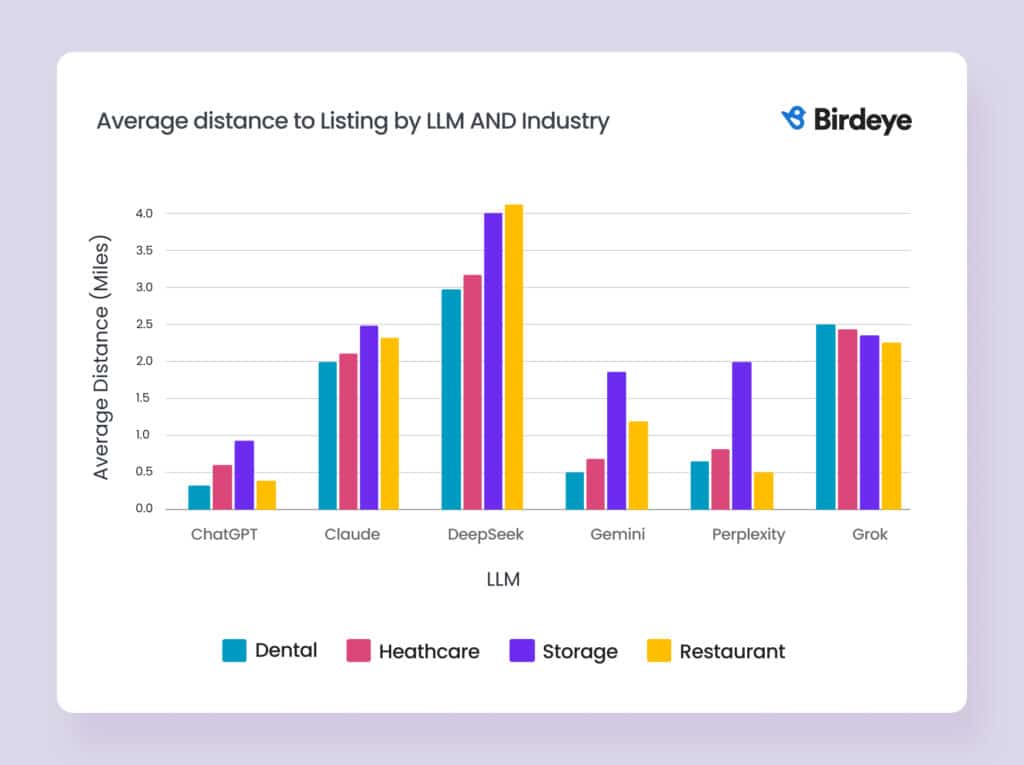
To ensure your business listing appears correctly everywhere:
- Keep your listings accurate and regularly updated
- Prioritize high-performing platforms like ChatGPT
- Closely monitor less accurate tools to avoid frustrating customer experiences
Next, let’s explore how LLMs perform across industries, some of which present more complexity than others.
Each industry faces unique challenges
Local SEO doesn’t impact all businesses equally. Since each industry has its own set of customer expectations and specific details, even small mistakes can have a significant impact. Here are some common issues we found across various sectors:
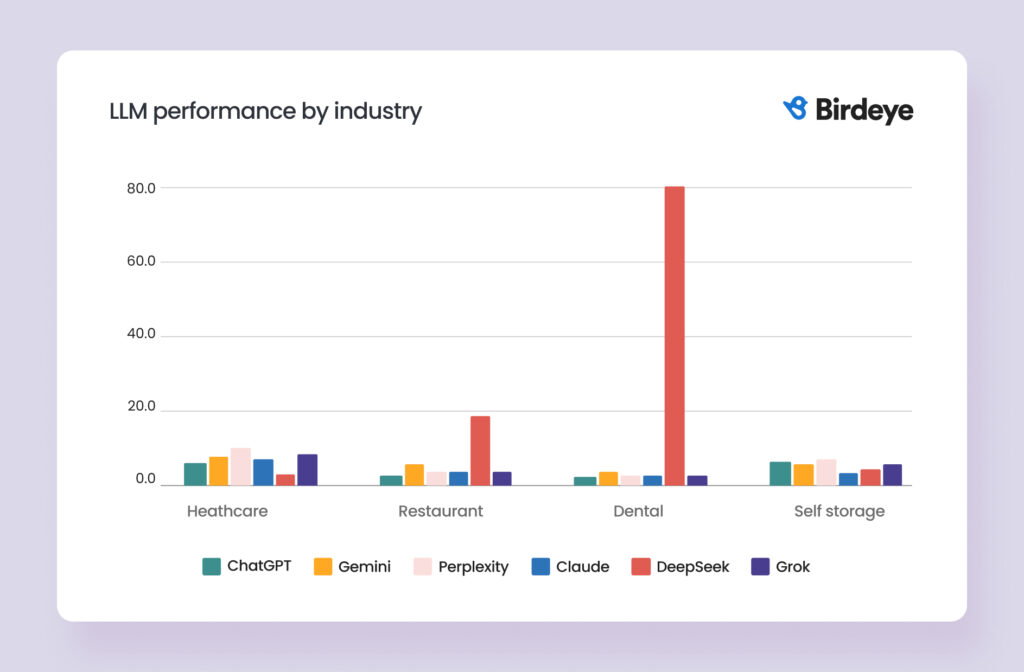
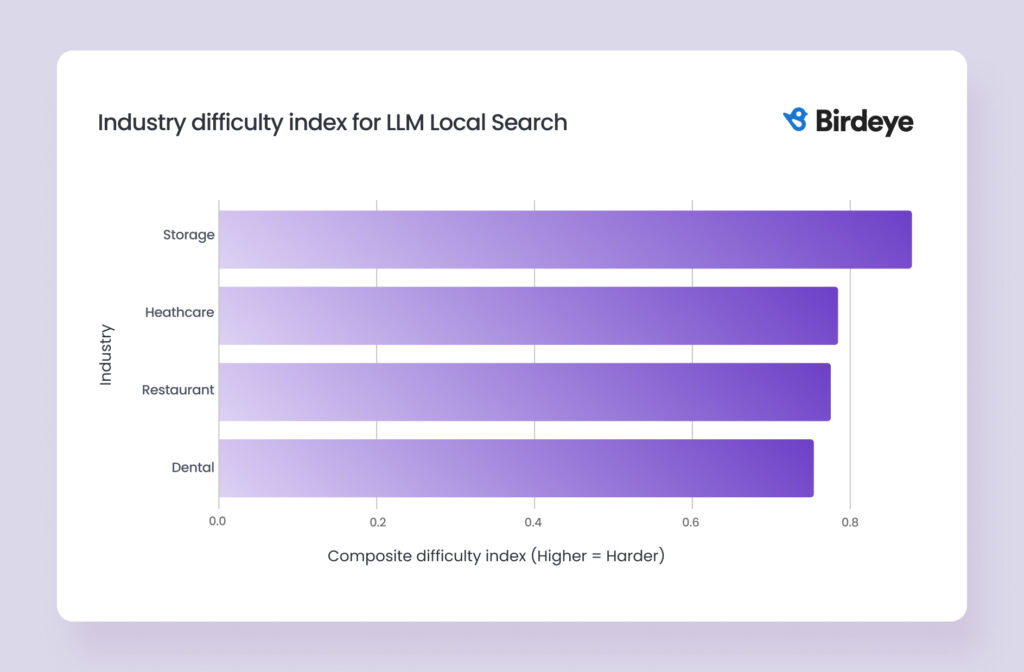
- Dental: LLMs often confuse general dentists with specialists like orthodontists, directing patients to the wrong provider.
- Healthcare: Many platforms listed closed clinics as open, which could lead to wasted trips.
- Restaurants: Several AI platforms showed closed restaurants as open, which could cause frustration for diners. This will directly impact customer satisfaction and the restaurant’s reputation.
- Self-Storage: Often mislabeled with moving services, leading to irrelevant search results.
Now, let’s look at why suburban and rural businesses face more issues than those in big cities.
Understanding AI’s accuracy gaps in suburban and rural areas
AI models work best with plenty of data. In urban areas, there’s a lot of information from online reviews, check-ins, and updated business listings. This helps AI tools deliver more reliable results.
But in suburban and rural areas, there are fewer data points. Less information means LLM models hallucinate, leading to errors. These inaccuracies can be particularly inconvenient for customers in smaller towns and rural areas, where fewer alternatives exist.
These accuracy issues are especially frustrating in less populated regions, where users have fewer alternatives. A wrong listing could mean a 30-minute drive in the wrong direction, something users in a dense city rarely face.
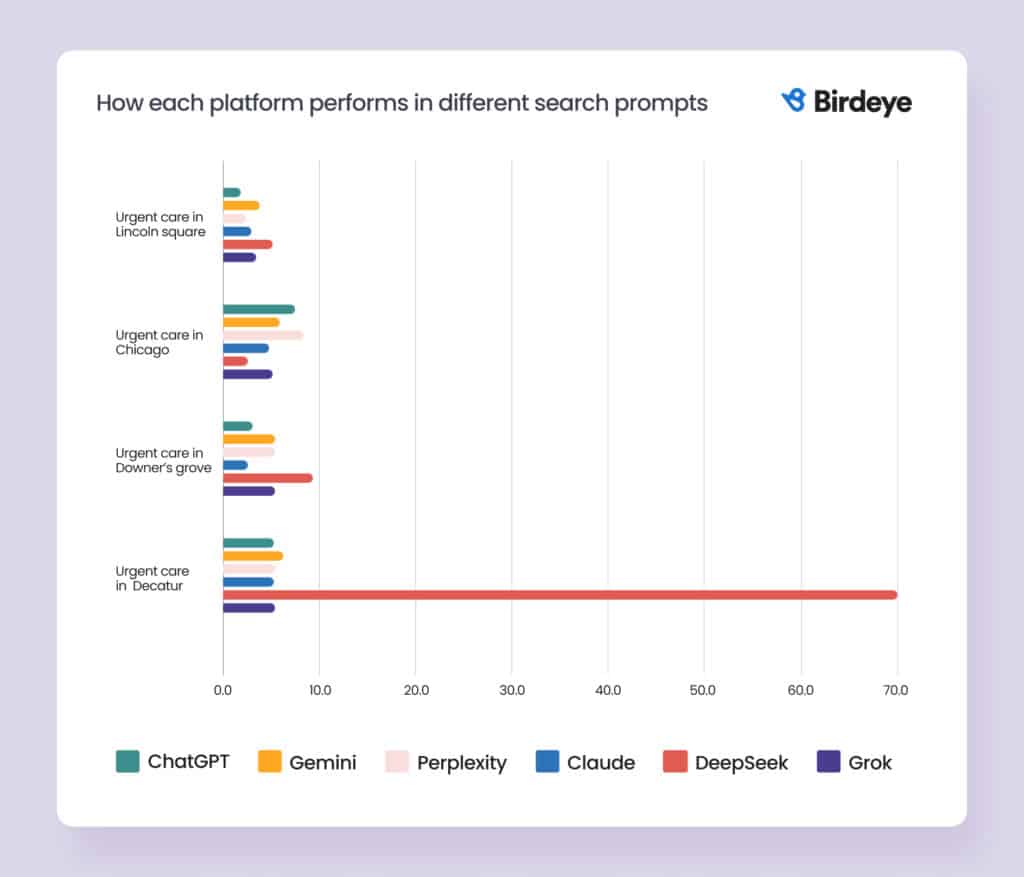
This trend is visible across the board.
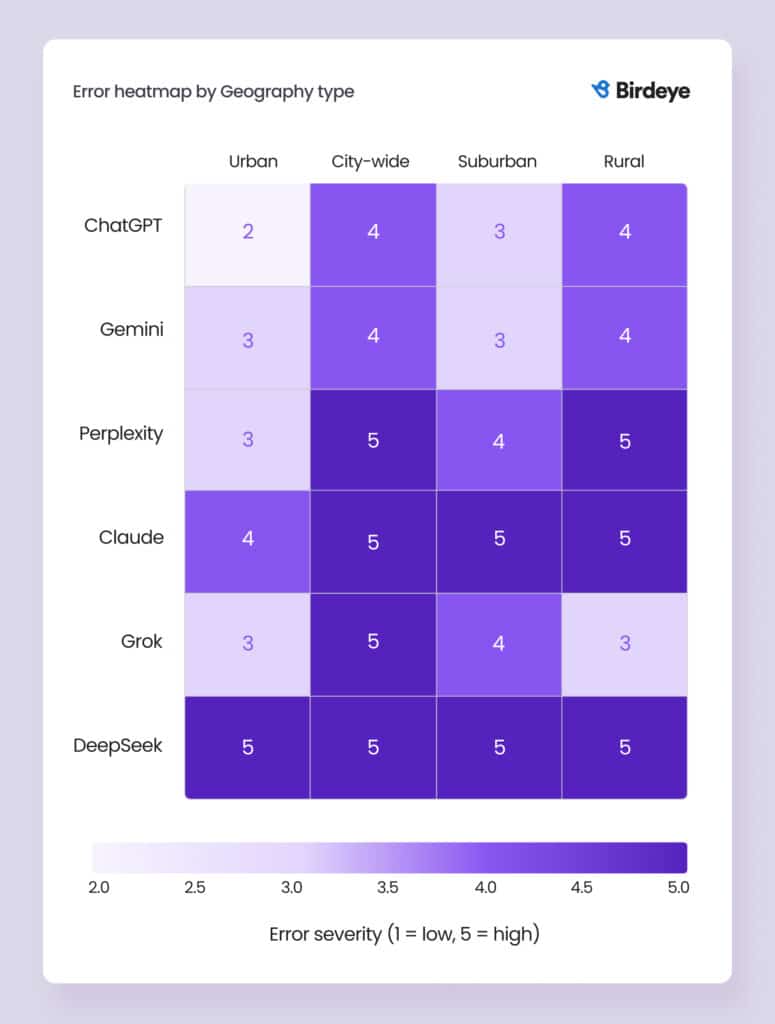
So what can your business do to stay visible and accurate, especially in less data-rich areas? The following strategies can help you stay ahead of both traditional and AI-driven search.
How to strengthen your visibility across AI and traditional platforms
To ensure your business shows up correctly, whether someone’s searching on Google Maps or through an AI assistant, you need to be visible in the right places with the right information. Here’s a breakdown of high-impact sources and what actions matter most:
| Where to update | Why it matters | Quick action |
|---|---|---|
| Google Business Profile, Bing Places, Apple Business Connect, Yelp, Facebook | Not only are these still the places where the overwhelming majority of local searches happen, but they are also important sources of data for LLMs | Monitor daily via API or dashboard; correct any errors as soon as they appear. |
| Reddit has increasingly become an important source for models to extract reliable information from. | Track mentions with a free Reddit alert. Develop a content plan on how best to optimize your brand on Reddit. | |
| Prominent listicle sites | LLMs reference listicles on top sites like Yelp, Eater.com, etc. (e.g., “top 10 orthodontists in Chicago”) and display them in the search results. | Monitor Google and Bing alerts. Request corrections or seed accurate info when needed. |
| Facebook, Instagram, X (Twitter) | Social profiles often rank on page one of Google and Bing search results and influence LLM context answers | Keep hours and address up-to-date; fix duplicates or stale “about” text. |
| Industry directories (Healthgrades, Zocdoc, OpenTable, TripAdvisor, SpareFoot, etc.) | Models pull niche data to answer “best near me” queries | Audit and optimize your location data on the top 3-5 sites per vertical |
| Data aggregators (Data Axle, Neustar/Localeze, Foursquare, TomTom) | They feed thousands of apps and GPS devices | Submit a master file once, then verify it quarterly |
| Your website | The only place you fully control and the primary source the AI models typically use when creating responses for brand-specific prompts. | Add schema.org markup (LocalBusiness, geo, opening hours); keep menus/services current |
| Structured feeds (product, menu, services, events) | Help LLMs return rich, detailed results. | Use Google Merchant Center/Yelp menu tools |
| User-generated content (reviews, Q&A) | LLM models quote reviews word-for-word, good or bad | Respond to reviews promptly; flag or correct inaccurate info. |
Now that you know how to improve your listings today, let’s look ahead to where local search is heading and how AI is evolving.
What’s next for local search in the age of AI
Here’s what we’re seeing on the horizon:
- LLMs continue to improve, but rural ZIP codes will likely remain more error-prone than urban centers through at least 2026.
- Localized, open-source AI models are on the rise, enabling mid-size brands to deploy their own “near-me” search tools within apps and websites.
- Regulatory frameworks are in development, with U.S. and EU agencies drafting guidelines to improve the reliability and transparency of AI models
- Flexible tech stacks will win. Businesses using modular systems (e.g., maps -> LLM -> validation) can adapt to better-performing tools faster than those tied to one vendor.
AI platforms are rapidly improving, but traditional search engines still set the standard. As AI gets smarter, we can expect improved results.
Want more insights? Download the full benchmark report
If you’re interested in diving deeper into how AI impacts local searches and how your business can get ready, download the full 2025 Local Search Accuracy Benchmark Report.
Make sure your customers find you every time, keep your listings accurate, and let AI tools become your new best friend in business discovery.

Originally published


